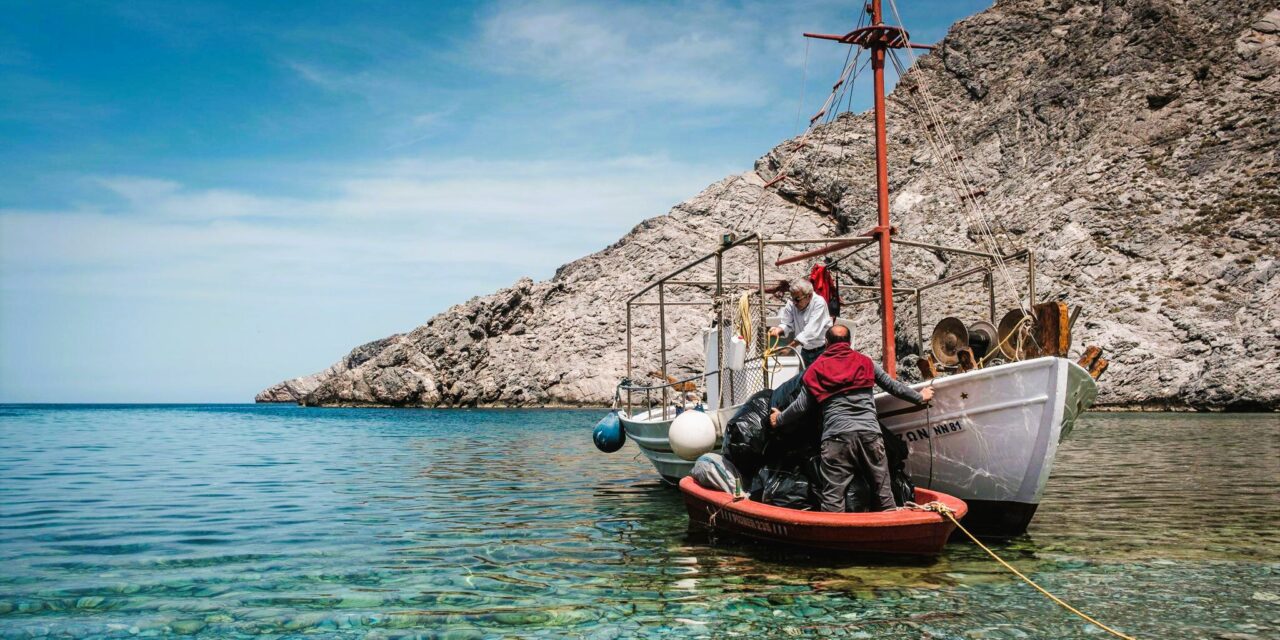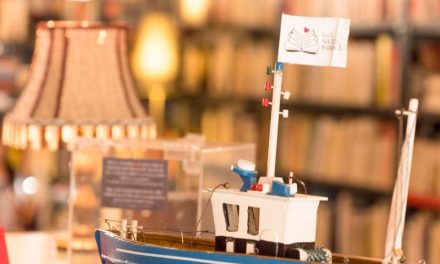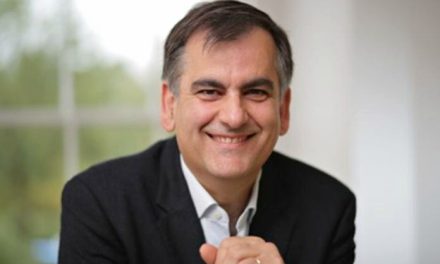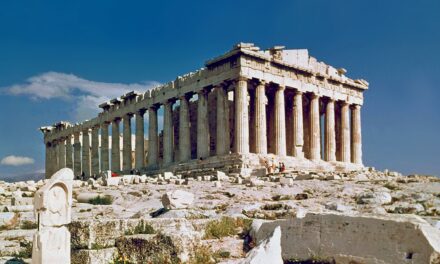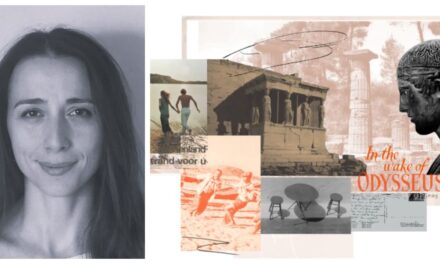In the rugged, mountainous landscape of Amorgos, one of Greece’s easternmost Cycladic islands, a remarkable movement is unfolding. Born from necessity and a deep love for the sea, Amorgorama is a fisher-led initiative that has become a global exemplar for marine conservation and sustainable fishing. This innovative partnership, uniting local fishers, conservationists, scientists, and government bodies, aims to protect the marine environment while safeguarding the livelihoods of the island community.
The Crisis that Sparked a Movement
For generations, the fishers of Amorgos relied entirely on the Aegean Sea for their sustenance and way of life. However, like many coastal communities worldwide, they began to face a grim reality: marine pollution and overfishing were devastating ocean ecosystems. Michalis Krosman, President of the Professional Fishing Association of Amorgos, recalled, “We thought the sea was a source that will never end. There will be fish forever.” But by 2010, fishers observed dwindling catches and decreasing incomes. Their nets often brought back more plastic than fish, and the northern beaches, inaccessible by land, accumulated tons of plastic rubbish every spring after winter storms. This plastic debris posed a threat to the ecosystem and fish reproduction.
The dire situation forced many fishers to take on second jobs, or even surrender their licenses and dismantle their traditional Greek fishing boats, known as Kaïkia, in exchange for compensation under a 2014 EU overfishing regulation. Faced with an uncertain future, the approximately 40 members of the Professional Fishing Association of Amorgos, known as “Η Χοζοβιώτισσα,” decided to take matters into their own hands.
The Birth of a Collective Vision: Amorgorama
The movement began taking shape as early as 2013 when the fishing association ventured beyond Amorgos to attend the 2nd European Low-Impact Fishermen (LIFE) conference in Spain. It was there that Michalis Krosman and his colleagues realized they were not alone in their struggles, and that solutions existed. This realization sparked a vision for a different future for Amorgos’s seas.
In 2019, the association co-founded Amorgorama with German artist and scientist Florian Reiche. The initiative gained early momentum through a successful crowdfunding campaign and key partnerships within Greece and beyond, including the Cyclades Preservation Fund (CPF) and the Blue Marine Foundation (BMF). The name itself, “Amorgorama,” embodies this hope: Orama means vision in Greek, signifying the fishers’ vision for “clean seas full of fish”.
The Four Pillars of Amorgorama’s Strategy
After extensive discussions and a hard-won consensus, the fishers of Amorgos developed a four-pillar master plan aimed at revitalizing their marine environment and ensuring sustainable livelihoods. This bold approach, unique in Greek fishing history, demonstrates their commitment to long-term sustainability.
1. Seasonal Fishing Prohibition: A critical decision was to pause fishing activities for all boats—local, professional, and amateur—during April and May. These months are crucial for the reproduction of commercially important fish species. This self-imposed economic blow, suspending fishing in the middle of the breeding season, highlights the fishers’ dedication to the natural environment.
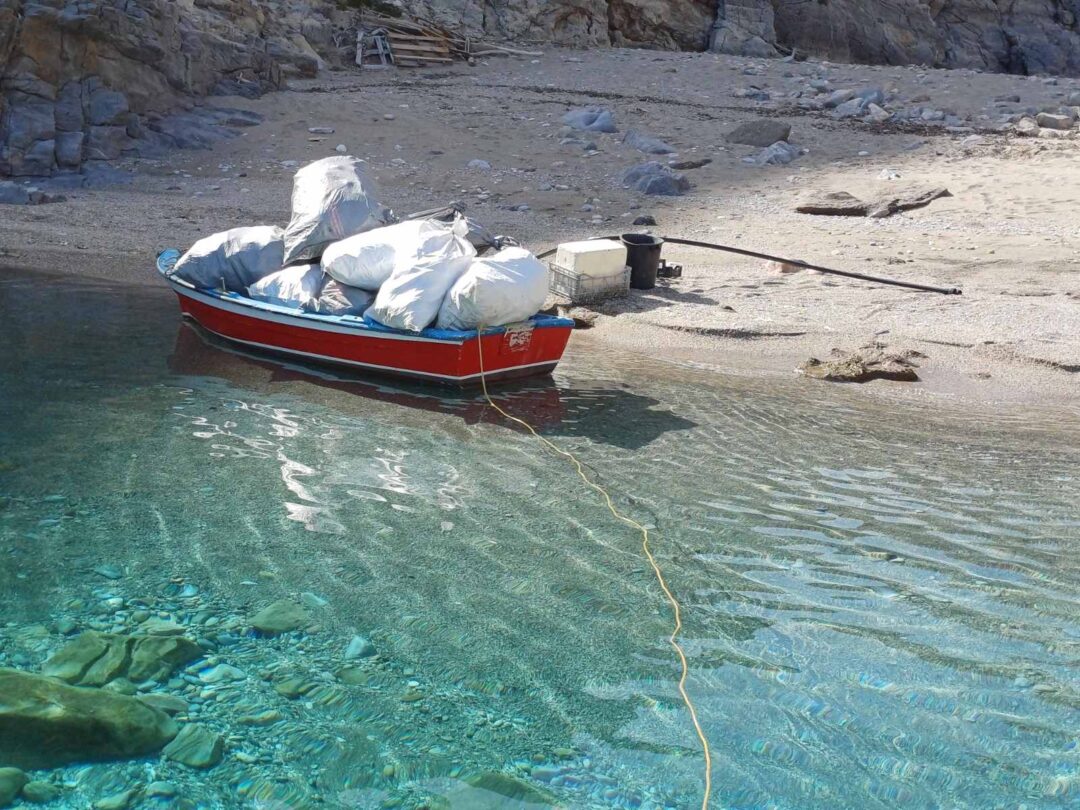
2. Coastal Clean-up Actions: During these two months of fishing prohibition, the fishers repurpose their vessels to address the pressing issue of marine pollution. They use their boats and local knowledge to clean inaccessible northern beaches, which accumulate tonnes of plastic rubbish. From 2021 to 2022 alone, 38 waste collection actions were carried out, with fishers collecting over 1,200 large bags of trash and sending more than 15 tonnes of plastic for recycling. Approximately 60-65% of the recovered plastic is recycled, along with 3 tonnes of nets and ropes.
3. Transition to Environmentally Friendly Fishing Gear: Amorgorama promotes and facilitates the adoption of more sustainable fishing practices. This includes replacing traditional gear with more environmentally friendly options, such as nets with larger mesh and hooks. The goal is to avoid capturing small, young fish, allowing them to grow and reproduce. Recyclable nets have also been introduced.
4. Creation of Fisheries Restricted Areas (FRAs): Perhaps the most critical and challenging pillar involved the establishment of no-take FRAs, meaning specific zones where fishing is permanently prohibited to enhance fish reproduction and biodiversity. These areas are designed to provide undisturbed havens for fish reproduction, which has been shown in other regions to dramatically increase fish populations. Initially, the plan was to permanently halt fishing for five consecutive years in three of the island’s most important fishing grounds: Nikouria, Katapola bay, and the area between the islets of Gramvoussa and Kalotaritissa. These zones will serve as sanctuaries for fish to reproduce and recover, acting as “banks” for fish stocks. The fishers themselves developed a management plan to reverse overfishing, understanding that they “had to sacrifice; they had to change, because otherwise they had to quit”.
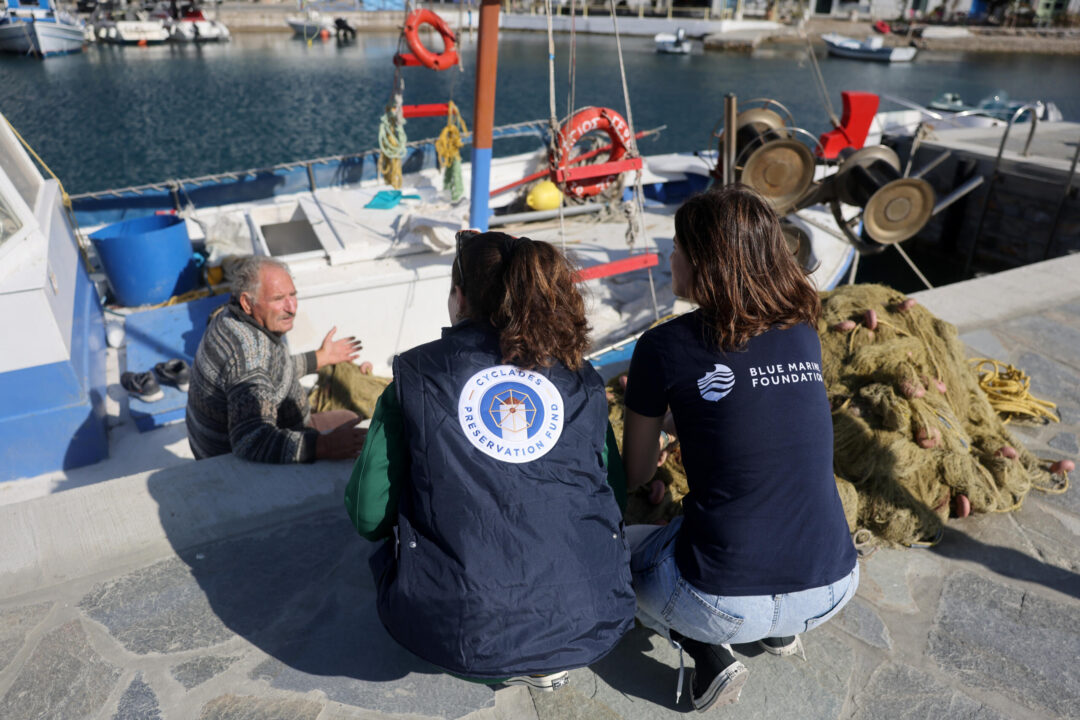
Key Partnerships and Government Endorsement
Amorgorama’s success is deeply rooted in strong collaborative partnerships. From its inception, the initiative received practical support from the Cyclades Preservation Fund (CPF), which provided funding, capacity, networking, and visibility. Soon after, the Blue Marine Foundation (BMF) joined forces, further bolstering the project.
A crucial scientific partner has been the Agricultural University of Athens (AUA). Following guidelines from the Greek Ministry of Rural Development & Food, the AUA conducted a vital fisheries study for Amorgos to identify and demarcate fundamental habitats and ideal sites for the Fisheries Restricted Areas. This study also proposed alternative management and protection measures for sustainable coastal fisheries. The study was privately funded Cyclades Reservation Fund and Blue Marine Foundation, underscoring the importance of these collaborative efforts.
The initiative’s community-led nature and scientific backing gained significant attention, leading to formal recognition from the Greek government. In September 2022, a memorandum of cooperation was signed between Amorgorama and the Deputy Minister of Rural Development and Food. This was a pivotal moment, signaling official support for Amorgorama’s goals.
In April 2024, at the Our Ocean Conference in Athens, the Minister of Rural Development and Food publicly announced the Greek government’s approval for the proposed new FRAs around Amorgos. This commitment was also reiterated at the same conference by the Greek Prime Minister, who pledged to expand Greece’s marine protected area network and ban bottom trawling in all MPAs by 2030, and to establish the FRAs around Amorgos that the fishers requested. The study’s approval is a significant step, as the establishment of these FRAs is expected to contribute to Greece’s commitment to establishing more Marine Protected Areas (MPAs) and FRAs by 2030 (known as the “30-30” target).
Following the positive recommendation from the Fisheries Council of the Ministry of Rural Development and Food in December 2024, a draft Presidential Decree (PD) for the institutionalization of the FRAs around Amorgos was submitted to the Council of State (ΣτΕ) in February 2025 for consultation.
The issuance of the Presidential Decree will make the Amorgorama one of a kind initiative in the world, and it’s no coincidence that the attention of both the Greek and global fishing communities is focused on Amorgos. “If it succeeds here, it will succeed elsewhere too,” emphasizes Mr. Krosman in an interview with Gastronomos magazine. “That’s why we say that during this five-year period, state support is needed. Without compensation, no fisherman will be able to survive.”
Furthermore, at the 3rd UN Oceans Conference in Nice in June 2025, the Greek Prime Minister, Kyriakos Mitsotakis, highlighted Amorgorama as a model initiative, emphasizing Greece’s commitment to expanding its marine protected area network from 20% to 30% and banning bottom trawling in all MPAs by 2030. The Prime Minister specifically cited Amorgorama as an example of “local fishing communities…establishing specific no-fishing zones around the island as safe havens for marine life”.
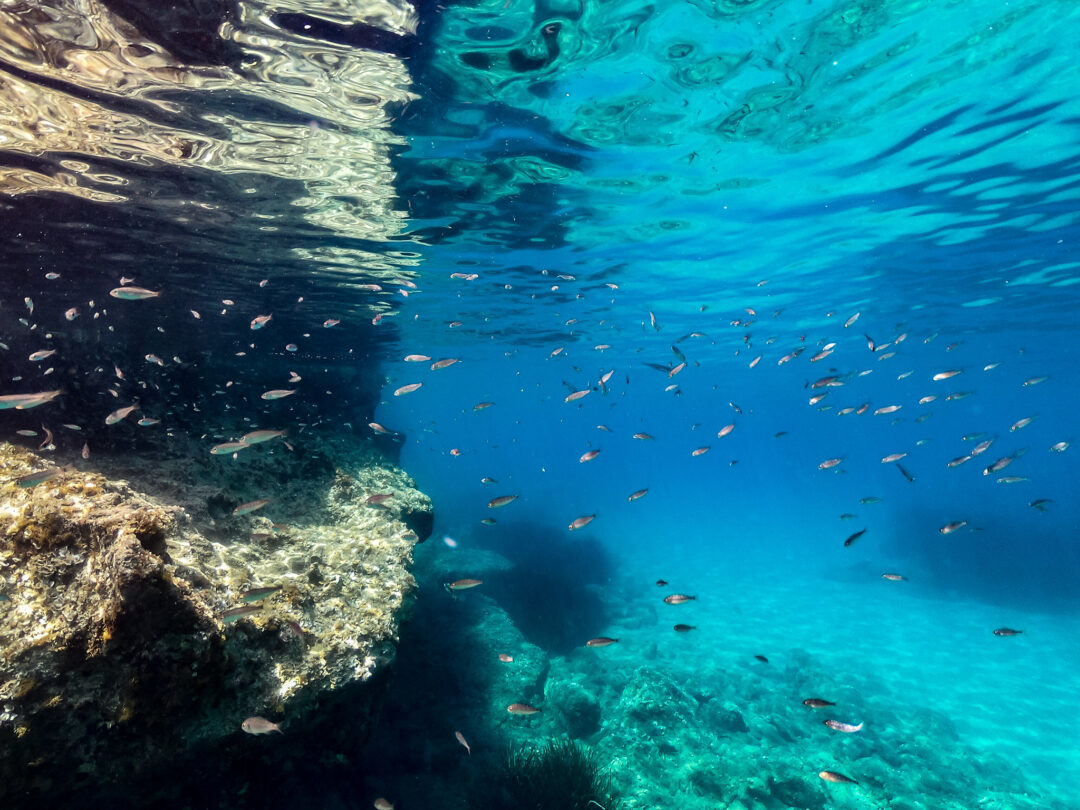
A Global Model and Future Outlook
It has obvious that Amorgorama’s bold actions and collaborative spirit have garnered international acclaim and its success might prove crucial for the future The initiative has also fostered peer-to-peer learning; Michalis Krosman connected with the president of the Gökova Fishers Association in Rome, whose successful marine protection efforts in Gökova Bay had originally inspired Amorgos fishers. They now meet annually to exchange insights.
While government support is critical, particularly regarding compensation for fishers during the no-fishing periods, the Amorgorama partners are committed to ensuring the long-term success of the Fishing Restricted Areas (FRAs), including matters of funding, scientific monitoring, and enforcement. The effective control and supervision of these restricted areas is a prerequisite for the success of the entire endeavor.
Today, Amorgorama stands as a beacon of inspiration and optimism not only for Amorgos but for other fishing and small communities across the Aegean Sea and beyond. What began as a desperate struggle by a handful of fishers has transformed into a globally recognized model for how local communities can lead the charge in protecting our oceans and ensuring a sustainable future for generations to come.
I.L., with information from Amorgorama; Cyclades Preservation Fund; Revive our Ocean; Gastronomos; Κυκλαδική΄΄΄; Innovationinpolitics.eu

Read more via Greek News Agenda
TAGS: CYCLADES | ENVIRONMENT | FISHING | GREEK ISLANDS | MEDITERRANEAN | SUSTAINABILITY

